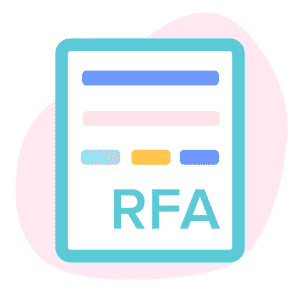Missing UR Decisions (and Other RFA Problems) Solved

If your practice treats injured workers, you can’t get reimbursed without proof of authorization.
Fortunately, California makes submitting Requests for Authorization (RFAs) and managing claims administrators’ Utilization Review (UR) decisions a simple, straightforward, delightful process.
Just kidding. It’s a massive hassle.
Learn how daisyAuth technology solves missing UR decisions, a significant problem that plagues every practice. For every RFA faxed, daisyAuth tracks all UR decisions, alerts you when RFAs are missing UR decisions, and collects noncompliance UR data to report to the California Division of Workers’ Compensation (DWC).
daisyAuth technology keeps RFAs and UR decisions organized so practice staff know exactly what to do — and when to do it.
Missing UR Decisions: Don’t Take Silence for an Answer
As the video above shows, daisyAuth provides an RFA Task List, making it incredibly easy to track outstanding tasks related to RFAs and UR decisions.
If you fail to fax an RFA or forget a bit of documentation, daisyAuth lets you know. And if the claims administrator fails to timely respond to any of your RFAs, daisyAuth helps you take appropriate action.
Once the due date for a response to an RFA passes with no UR decision received, daisyAuth generates a ‘No Response’ task for practice staff to follow up in three steps:
- Call the claims administrator; daisyAuth provides the relevant phone numbers and details.
- Have the RFA fax receipt on hand — daisyAuth displays documented proof the claims administrator received your RFA for reference during your call.
- Document the claims administrator’s reason for failing to timely respond to the RFA.
Depending on the reason for the missing UR decision, daisyAuth generates further tasks to get the job done — from additional calls to quick and easy RFA resubmission. daisyAuth continues to generate Tasks for as long as necessary, until the UR decision is received.
Plus, daisyAuth collects and documents all ‘No Response’ data, to report UR non-compliance to the California Division of Workers’ Compensation (DWC).
Practices have to be vigilant with RFA and UR management to protect revenue and make it financially sustainable to treat injured workers. If the claims administrator fails to respond to an RFA with a timely UR decision, daisyAuth is on top of it — so you can be, too.
Enjoy 30-second RFA submission and automatically tracked UR decisions with daisyAuth — request a demo below!
REQUEST DEMO
DaisyBill provides content as an insightful service to its readers and clients. It does not offer legal advice and cannot guarantee the accuracy or suitability of its content for a particular purpose.





.gif)